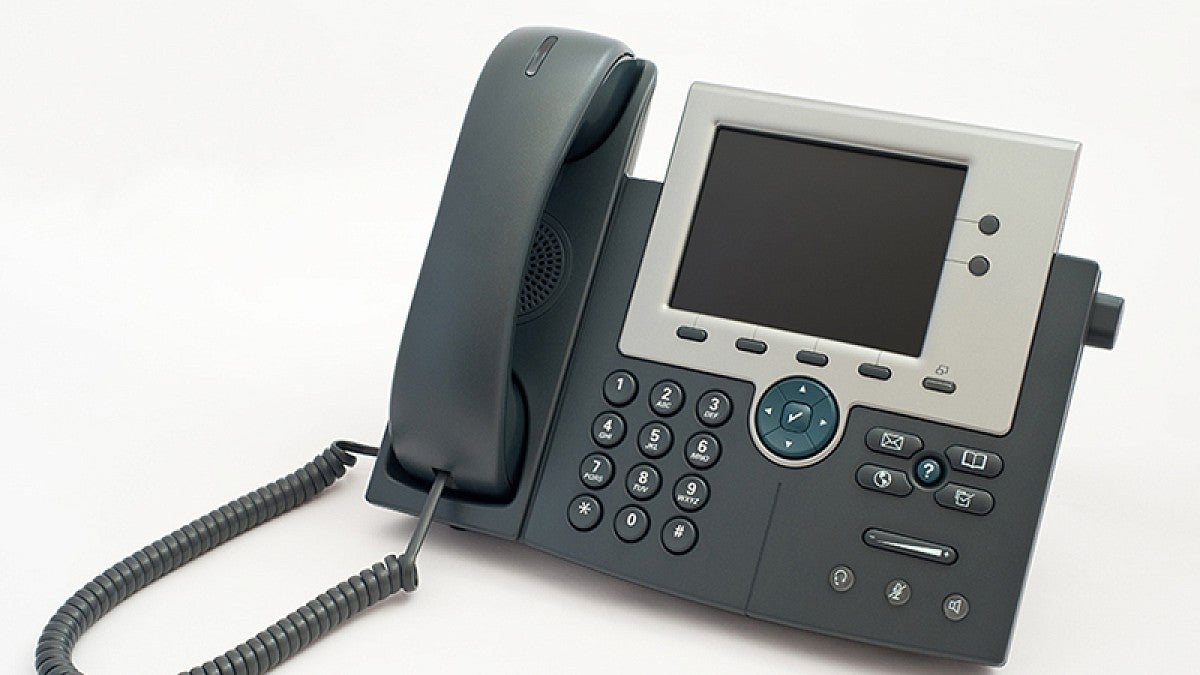Now that most University of Oregon employees use Teams calling for phone service, Information Services is focusing on replacing the remnants of the old phone system with a new one for locations with certain critical safety and business needs.
"We still have over 2,000 lines on the old Avaya system," said Christy Long, associate chief information officer for technology infrastructure. "About half will be disconnected because they're no longer needed. Of the rest, we'll replace hundreds with new Cisco phones. And quite a few others will be transitioned to Teams calling."
As part of this process, Information Services is strongly encouraging departments to consider alternatives to analog fax lines. However, some analog phone lines will be kept for fax machines.
The so-called utility voice service will accommodate a limited range of uses for which Teams calling isn't a good fit, such as in locations where people handle hazardous materials or where visitors to restricted-access buildings use a door phone to communicate with staff inside.
Information Services switched elevator phones and emergency phones on the Eugene campus to the new system in November and December. The project team aims to substantially complete the remainder by Jan. 27, when UO's support contract with Avaya ends.
The new utility phone system will use Cisco phones and a corresponding new voicemail system. The Cisco IP phones section of the UO Service Portal contains how-to information, including printable quick reference guides.
Phone service for most UO employees switched to Teams calling last year. That effort is substantially complete. One significant delay did push the overall timeline into 2023.
"University Health Services has an exceptionally complex phone system," Long said. “To ensure a smooth transition to Teams calling for UHS, we delayed its transition until mid-December.”
Virtually all other phone-related work, such as adjustments to call queues in Teams calling or expansions of the Amazon Connect system, are on hold while telecommunications staff complete the utility voice rollout.
"Our timeline was already short. Now our team is working to complete an enormous amount of work on an even more compressed schedule," Long said. "We want to thank all of our UO partners for the work you've put in to make this possible and ask for your continued patience and understanding."
In contrast to the Teams calling transition, which was phased in by units, the utility phone transition will be organized according to physical infrastructure components that don't align as neatly with departments or individuals. For that reason, employees may receive little communication before this final transition.
Each phone line that switches to the Cisco system will be unable to receive calls for about half a day while technicians complete the transition process. The work will typically start in the evening and extend several hours into the next business day. Avaya phones still will be able to make outbound calls during that time. The final step in the process will replace the Avaya phone with a Cisco phone.
Voicemail service on the new system will be available upon request. Details will be provided to each affected employee after the transition. Messages on the old voicemail system from before the transition will be accessible until Jan. 27.
Anyone with questions should submit a ticket through the voice services support page of the UO Service Portal or contact their departmental phone coordinator or the IT staff who support their unit.
—By Nancy Novitski, University Communications


